Most people have a certain thing that they value not simply because of its price, but because it means something to them – its sentimental value. This often has to do with the history of such a precious thing. That is why it becomes all the more disappointing when people who do not share the historical relation to such a thing, thus, who do not have the sentimental value associated with it, covet and try to take it from its original owner. No wonder their arguments often fail to address the issue, as was the case in this Redditor’s story.
More info: Reddit
This man was asked to give his mother’s engagement ring to his stepsister

Image credits: jennie-o (not the actual photo)
The man refused as this ring was left to him by his mother, who died when he was 7 Y.O.
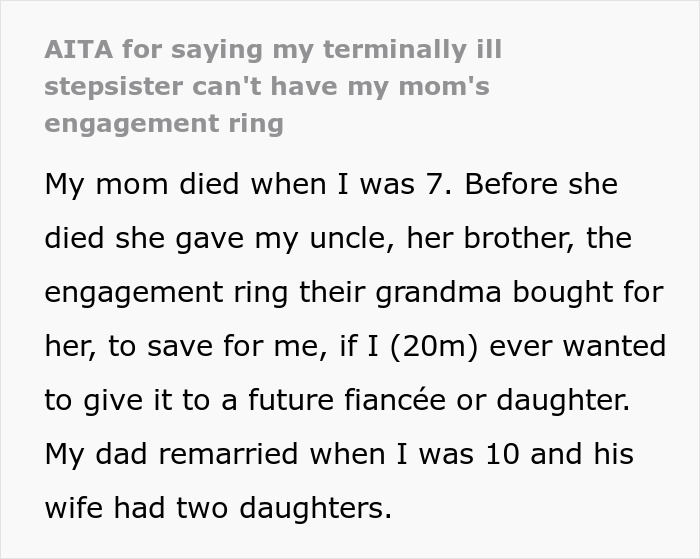

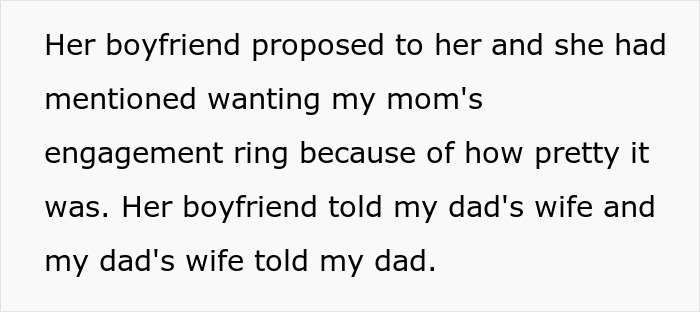
Image credits: ShipLow3506

Image credits: The Last Cookie (not the actual photo)
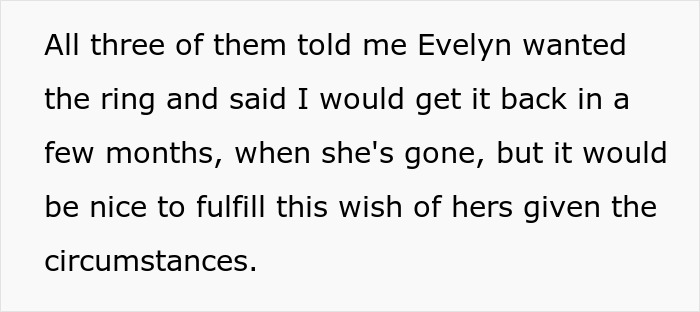
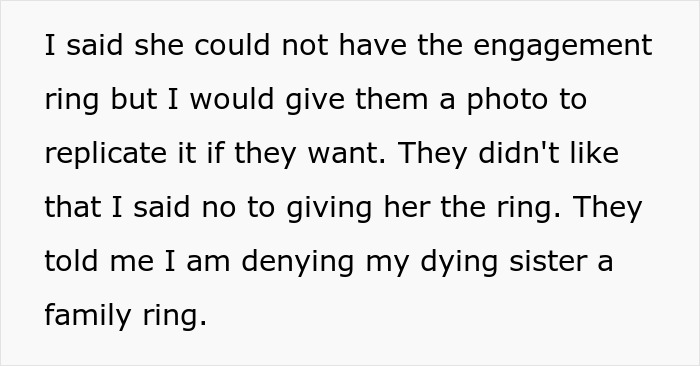

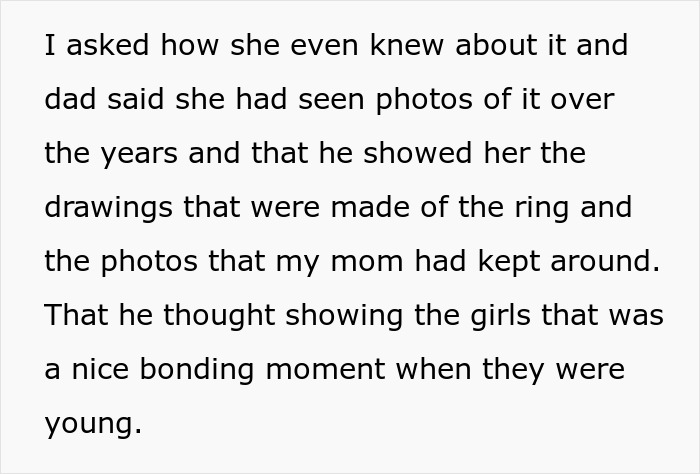
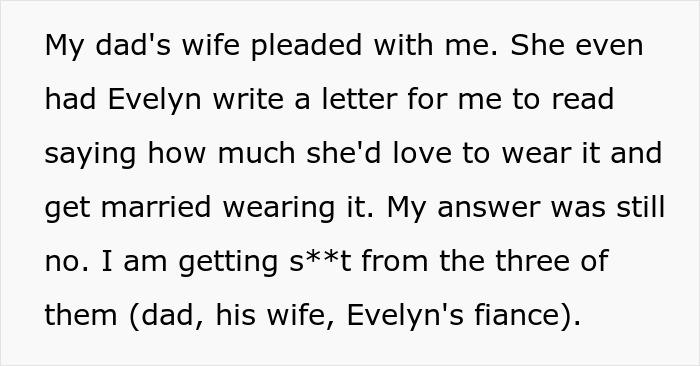

Image credits: ShipLow3506
The Redditor’s stepsister is getting married and wants his family ring just because she finds it pretty

Image credits: Polina Zimmerman (not the actual photo)
The stepsister’s parents think that, given she is terminally ill, the Redditor should let her have the ring and take it back when she’s gone
The story started when this family got divided over the ‘family ring’. This man was asked to give the engagement ring given to him by his mom, who died when he was 7 Y.O., to his stepsister from another mother; however, he refused to do so.
The man explained that his family has tried various ways to pressure him to fulfill his stepsister’s wish. They gave him their arguments, claiming that, given his stepsister is terminally ill, he should give her the ring and get it back after she is gone, in addition to accusing the man of denying his stepsister a family ring.
His stepmother went as far as to plead with him and have his stepsister write him a letter saying how much she would love to wear it and get married wearing it. Eventually, all three family members expressed their disappointment with this man’s decision and he gave his reasoning answering the objections from his family online.
First of all, despite his parents using his stepsister’s illness as the main argument here, it might be noted that the ring’s ownership and his sister’s illness are two separate topics and his stepsister’s illness is not directly related to the issue. Even more so, as emphasized by some of the commenters on Reddit, his parent’s suggestion to “lend” the ring to the woman until she passes is disrespectful to her, to say the least.
Second, the main reason his stepsister gave for wanting the ring is that she finds it pretty. In response to her preferences, this man offered her a picture of a ring so it could be replicated, but his family rejected the suggestion.
Finally, to his parent’s claim that he denied his stepsister a ‘family ring’, this man answered that it is not her family ring, but his family ring. Which is only logical as it belonged to his mother, whom his stepsister never even met. For this reason, the ring does not have the special significance to his stepsister that it has to this man.
The Redditor agreed to give her the ring’s picture so she could replicate it, but he refused to let his stepsister take over his family ring

Image credits: RubyGoes (not the actual photo)
Value of a cherished possession often lies in it taking part in one’s history and serves as connection to it
In her study, Daniela Petrelli listed various reasons why certain physical objects – mementos – are regarded by people as important. These included reminding a person of a certain event, signifying a relationship, or joint activities. Finally, a thing might be valued for serving as a personal reminiscence that enables one to relive certain life experiences.
It was noted by Sheldon S. Tobin that meaningfulness of cherished possessions often lies in their legacy. As opposed to people, who change over time, certain objects do not change or change less and are sometimes kept for their personal meanings. People normally choose which things they keep as a kind of legacy to themselves. In this way, things serve as connections to a person’s own historical past.
In several studies, it was emphasized that cherished possessions serve the purpose of maintaining the continuity of one’s self-identity through time. The tendency to cause a “de-selfing” process in elderly people when such possessions were left behind was noticed. Finally, it was shown that such valued things can help a person maintain their self-identity through events that are threatening to erode it, such as facing the loss of people close to us.
As noted by Tobin, the fondness for a cherished possession comes from the meaningful memories that are associated with it and that are in turn evoked by it.
All in all, the story circles around the family ring and it seems only fair that the one who has the closest connection to the ring’s history and personal significance associated with it gets to keep it or pass it on if he chooses to.
Redditors noted that his stepsister had no connection with the ring and her parents’ idea to “lend” her the ring was bizarre
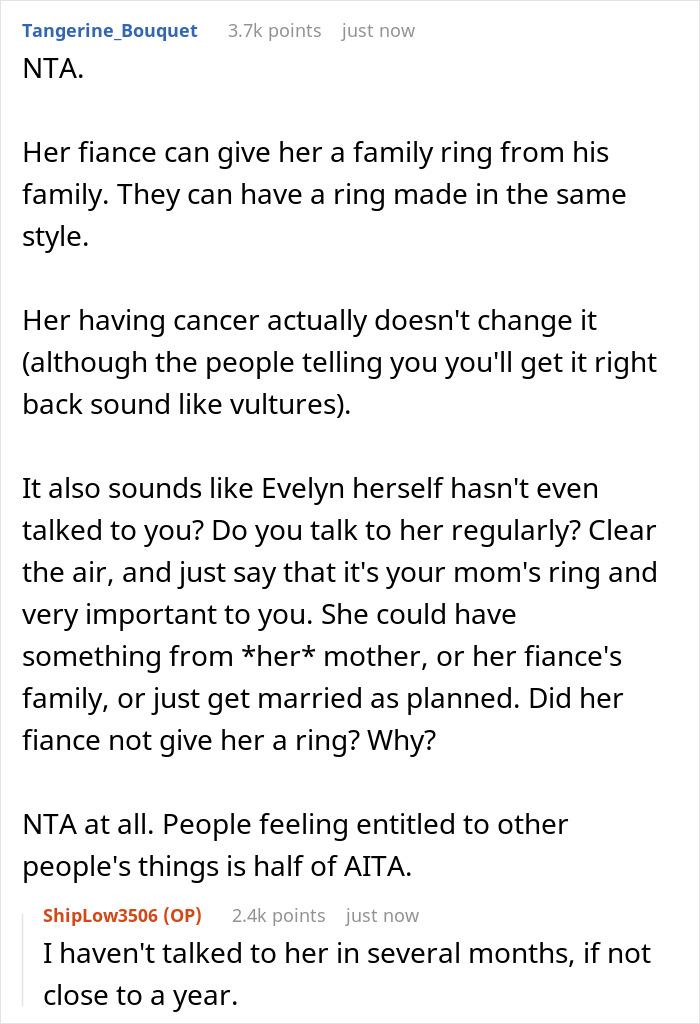
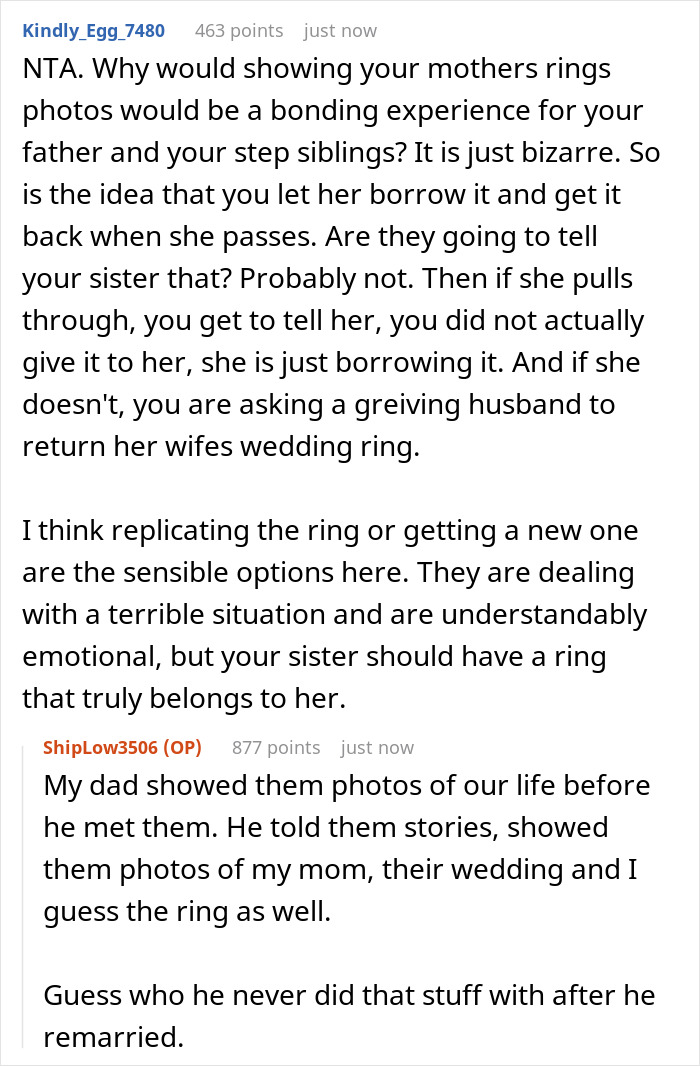
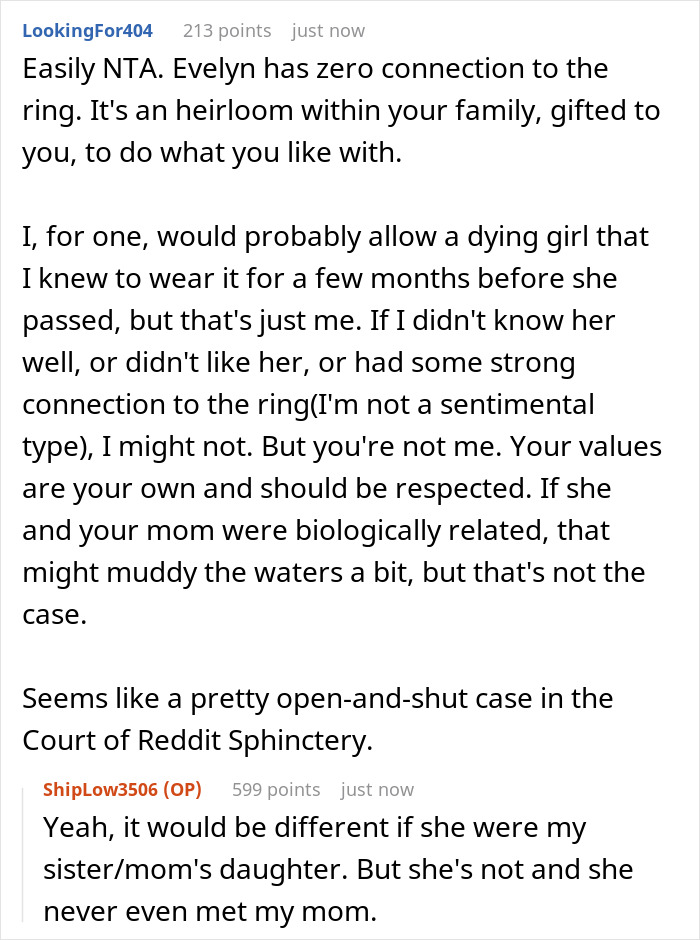
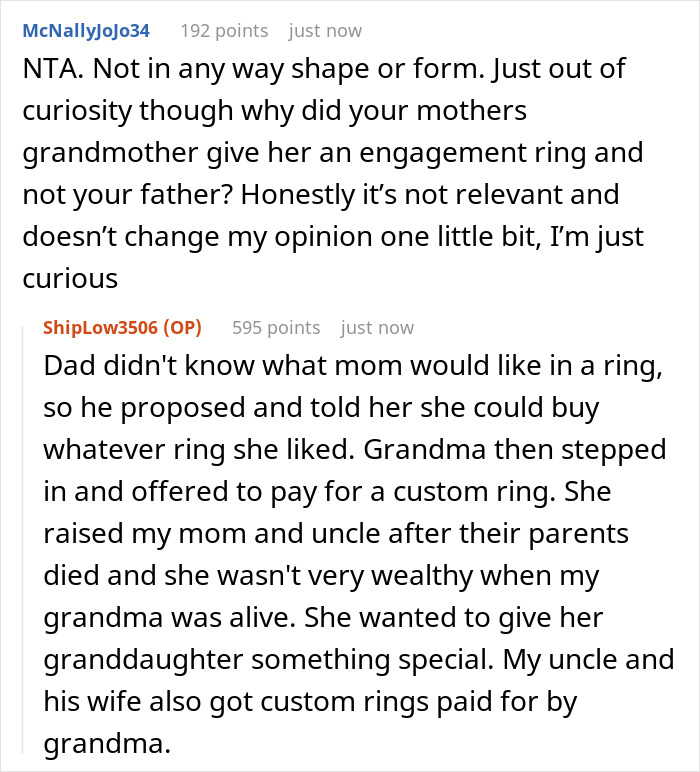





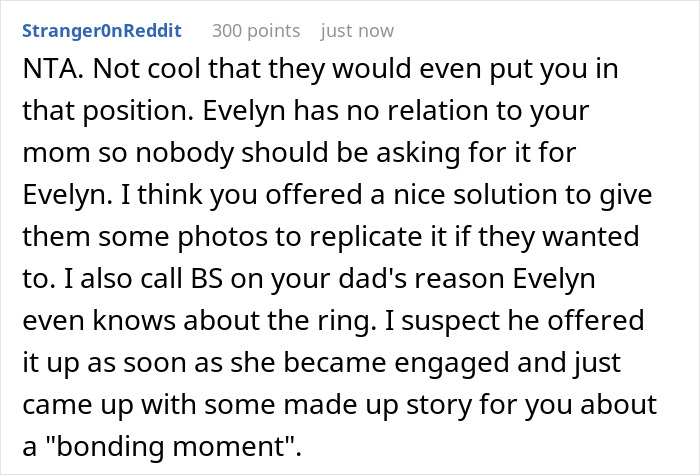
The post “[Am I The Jerk] For Saying My Terminally Ill Stepsister Can't Have My Mom's Engagement Ring” first appeared on Bored Panda.
from Bored Panda https://ift.tt/qGk6EtQ

